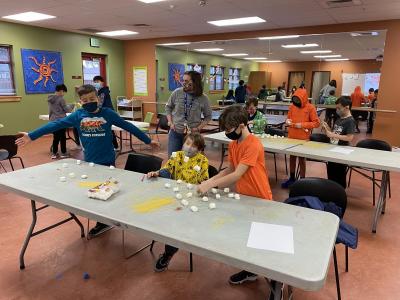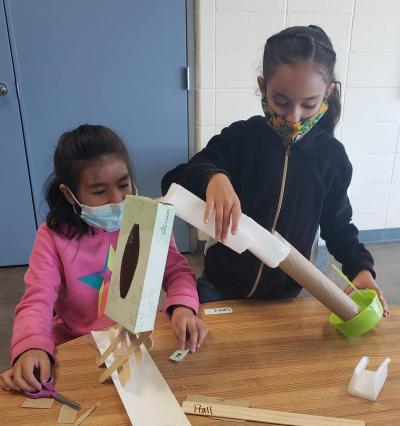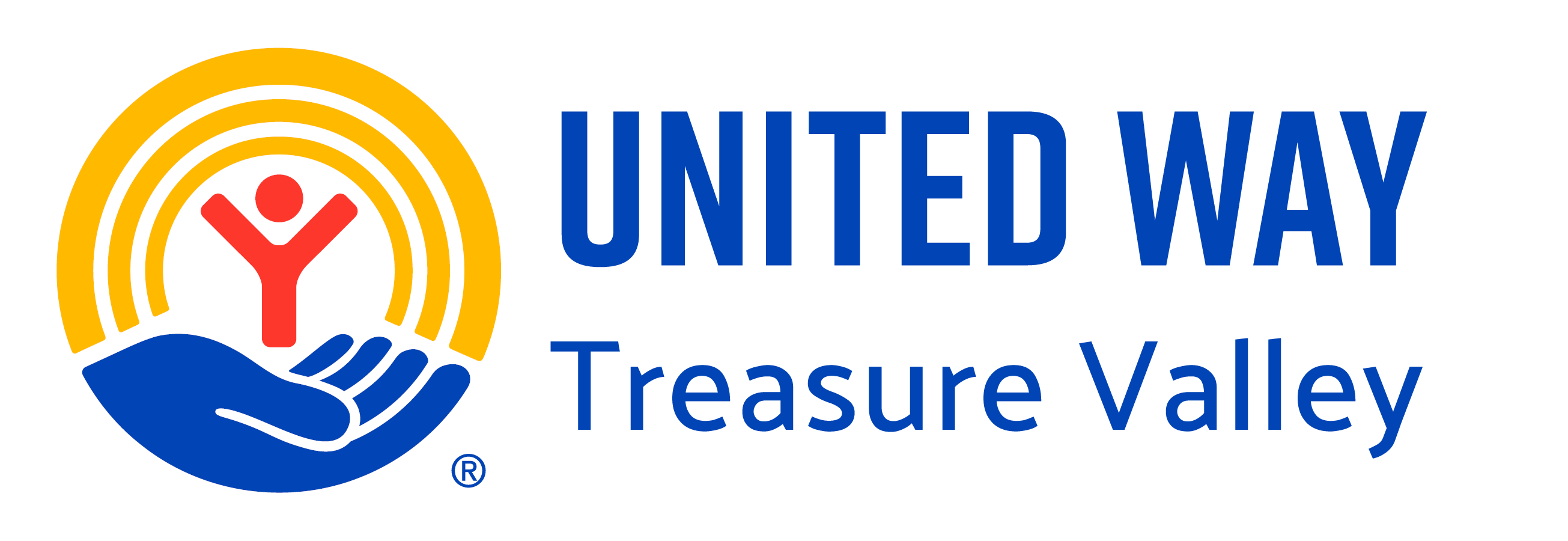We Were Built For This
For many families, school has become a lifeline during the COVID-19 Pandemic. Schools have always been a central place in our community where families come to connect, learn, and achieve success. During the COVID-19 Pandemic, Idaho schools have become even more important to staying connected and supported as a community.
Schools in Idaho using the Community School strategy have been uniquely responsive in supporting the needs of students and families and helping us all stay connected in this challenging time. The Community School strategy, introduced to Idaho by the United Way of Treasure Valley and now being used at 30 schools statewide, engages community partners in collaboratively identifying and removing barriers to success for students and families. Stories from the Idaho Coalition for Community Schools demonstrate how these schools immediately sprung into action to engage community partners and address the new barriers facing students and families during the pandemic.
In the Nampa School District, the Community School team came together to make a list of families that were struggling to meet basic needs. They engaged community partners to pack and deliver food boxes. When the local food bank was low on resources, the Community School team and community partners coordinated a ‘Stuff the Bus’ event to rally community support and collect food and basic necessities for distribution to families.
At McMillan Elementary, a pre-established partnership between the school and a local church helped families avoid hunger and small business owners remain afloat early on in the pandemic. Through a ‘food ministry collection’, the church collected enough resources to provide emergency food boxes and grocery gift cards to needy families. They also provided food vouchers to local food trucks that parked in the church’s parking lot on different days of the week, providing families with a fun and safe dining experience, and local food trucks with business to remain afloat.
In partnership with the City of Boise, the Boise School District Community Schools opened emergency play camps during the Stay at Home order in late March. These camps allowed essential workers to continue providing necessary services to the community despite schools and childcare closing. Boise Community Schools have also continued parent engagement strategies, despite physical distancing, by engaging community partners to provide parenting classes and english language classes via virtual platforms.

The Kuna School District Community Resource Center is known as a place where families can find help anytime, but even more so during the pandemic as the center saw a 240% increase in the number of visitors. And Kuna Community Schools partnered with the local bus company to ensure students in need continued to receive a weekend supply of food through the Idaho Foodbank Weekend Backpack Program, despite students not being able to pick up this resource in person. Bus drivers delivered food directly to students’ homes, keeping students fed and bus drivers working.
 When schools closed in spring of 2020, Sacajawea Community School team reached out immediately to help families. Individualized support was provided in connecting families to resources they needed to remain stable during the pandemic. The Community School team was determined to keep opportunity youth engaged and learning over the summer despite difficult circumstances. Through the support of its Community School partners, such as the STEM Action Center, the school was able to develop plans and the resources needed to safely offer a two week STEM camp to 45 students.
When schools closed in spring of 2020, Sacajawea Community School team reached out immediately to help families. Individualized support was provided in connecting families to resources they needed to remain stable during the pandemic. The Community School team was determined to keep opportunity youth engaged and learning over the summer despite difficult circumstances. Through the support of its Community School partners, such as the STEM Action Center, the school was able to develop plans and the resources needed to safely offer a two week STEM camp to 45 students.By engaging in partnerships with Community Schools, the Western Idaho Community Action Partnership (WICAP) has been able to provide targeted support to struggling families for utilities, childcare, and basic needs. These school partnerships have allowed WICAP to meet families where they are to provide support, and eliminated the barrier of families having to search out resources in the community.
Notus Elementary has seen a dramatic increase in families doubling up in housing this year. Many families have simply been in survival mode since last spring, and this has taken a mental and emotional toll. Yet families know that through the Notus Community School Strategy, they can be connected to the resources they need to get through challenging times.
At schools utilizing the Community School Strategy, the school has become vital to the heart of the community. The school has become a community hub where educators, resource holders, and the community unite to lift all families. This collaborative strategy can continue to meet families where they are and provide the resources students need to maintain stability and continue achieving academic success, even amidst a pandemic.
The Idaho Coalition for Community Schools (ICCS) is a partnership between the United Way of Treasure Valley, the Idaho State Department of Education, TVEP/RISE, local School Districts implementing the Community School Strategy, and social service organizations. The ICCS works to advance the development of Community School strategies throughout the state of Idaho.
The United Way of Treasure Valley supports Community Schools by connecting resources including community services and a school pantry, grant opportunities for Community Schools and organizations who partner with Community Schools, and hosting a learning community for Community School professionals. UWTV also serves as the backbone for Sacajawea Community School and the Idaho Coalition for Community Schools.
